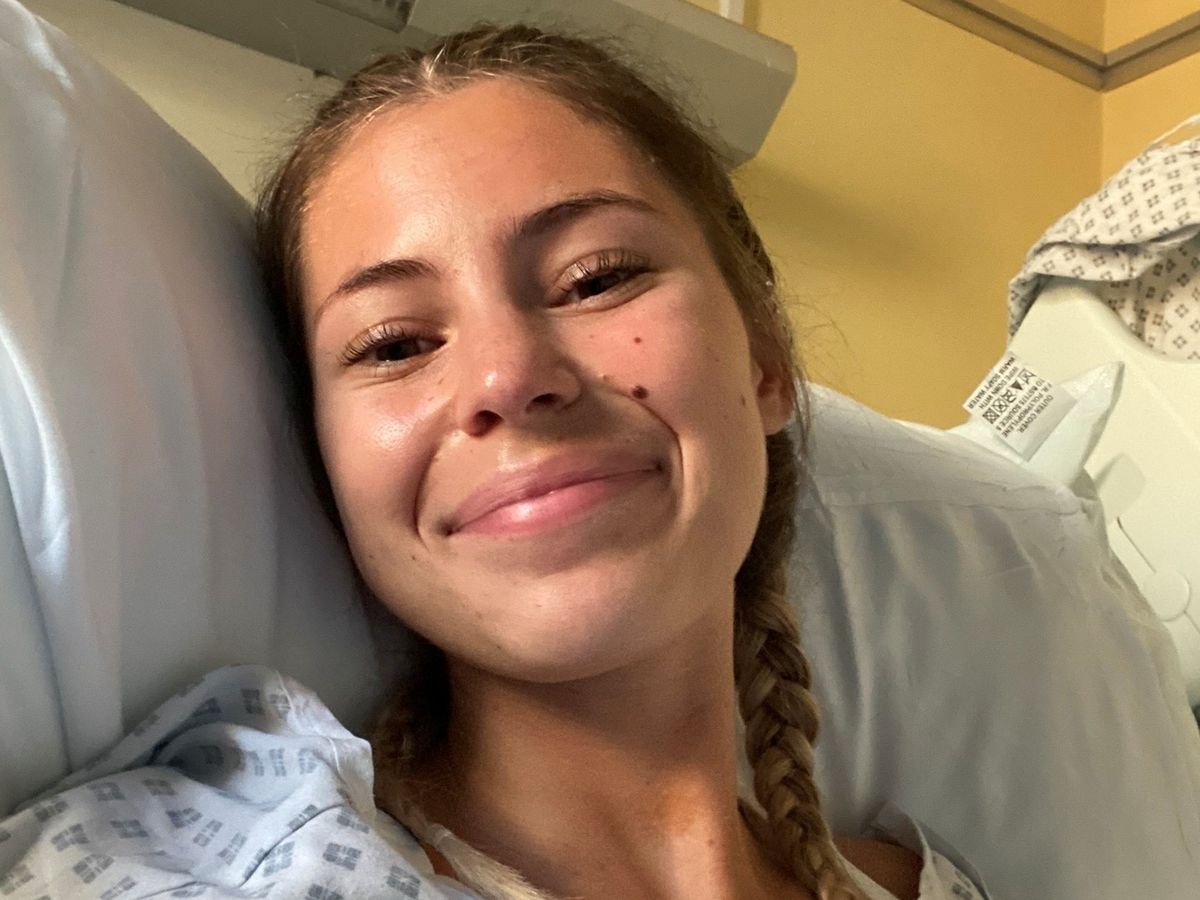Copyright mirror

Scientists have discovered that a form of morning after pill could prevent young women getting breast cancer . The pill, currently offered for free on the NHS , blocks the effects of the hormone progesterone and was shown to cause changes in breast tissue which can help prevent cancer developing there. A young woman who opted to have a double mastectomy as a preventative measure says the discovery “offers hope” to others at high genetic risk from the disease. A Manchester University trial of 24 women at high genetic risk due to a family history of breast cancer took ulipristal acetate between 2016 and 2019. The women, aged 34 to 44, saw their breasts become less dense and stiff - which is known to make the environment less favourable for cancers to grow. Lead author Dr Sacha Howell, of Manchester University and Consultant Oncologist at specialist cancer hospital The Christie, said: “We are profoundly grateful to the women who volunteered for this study. Our research, with them, provides evidence that progesterone plays a critical role in breast cancer development in high-risk individuals. By targeting its action, ulipristal acetate and other anti-progestins show promise as preventive treatments for women at increased risk.” The breakthrough suggests repurposing ulipristal acetate for breast cancer prevention may reduce the risk of it developing in at-risk women before the menopause. Currently such women have only two options to reduce their risk. One is long term hormone therapy which can come with side effects such as increased blood clotting risk and loss of bone density. The second option is preventative surgery to remove some or all of the breasts. Grace Burton, aged 27, underwent a preventative double mastectomy last year after finding out she was at high risk of breast cancer due to an inherited BRCA1 gene change at the age of 21. Grace, from Bromley, south London, said: “Breast cancer has had a huge impact on my family - both my mum and my aunt were diagnosed, and knowing I was at high risk was always in the back of my mind. "Having later gone through preventative surgery myself, I know how heavy and difficult those decisions can feel. That’s why this new research into preventative medication is so exciting, it offers hope for other women who might one day have less invasive options to protect their health. “For those of us with a strong family history, the possibility of preventing breast cancer before it starts is incredible. It gives me hope that future generations may not have to make the same tough choices and can grow up with more options and less fear around breast cancer.” Dr Simon Vincent, chief scientific officer at Breast Cancer Now, which funded the new research, said: “We desperately need better risk-reducing treatments for women at high risk of breast cancer, that also protect their quality of life. And we need to explore all avenues, including existing drugs with the scope to be repurposed, to achieve this. “Currently, these women have only two options to reduce their risk - both of which have a profound impact on their physical and emotional wellbeing.” The 24 women on the trial took ulipristal acetate for a 12-week period and underwent breast biopsies, blood tests, and detailed Magnetic Resonance Imaging (MRI) scans before and after treatment. MRI scans showed that the breast tissue became less dense with treatment and the treatment worked best in women who had high breast density before treatment started. The study, published today in the journal Nature, found that taking ulipristal acetate helped block the growth of breast cells that can turn into cancer, called luminal progenitors. These cells are the starting point for triple negative breast cancer, a more aggressive form of the disease that is more common in younger women and black women. Previous research has shown that the risk of triple negative breast cancer coming back or spreading in the first few years after diagnosis, is higher than in other types of breast cancer. Dr Vincent added: “This research into ulipristal acetate is an important step forward, and aligns with our key strategic goal to accelerate the discovery of preventative treatments. We now need larger, longer-term studies, so we can fully understand the potential of this drug to stop breast cancer developing.”



